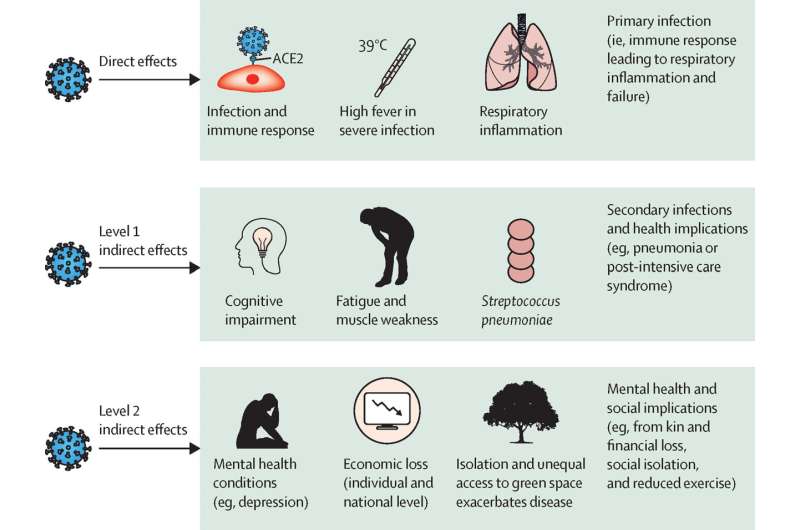Ecosystem restoration is integral to humanity's recovery from COVID-19

The repair of ecosystems as a core public health intervention can reduce the risk of infection and play an integral role in the long-term rehabilitation from COVID-19, which has so far claimed up to 15 million lives globally through direct and indirect infection (World Health Organization, 2020–21).
"Make no mistake. The loss of functional and resilient ecosystems around the world is linked to the global pandemic and the fundamentals of health and socioeconomic recovery," says lead researcher Flinders University ecologist Dr. Martin Breed. "The long-term health effects and economic recovery remain major concerns."
Without effective and large-scale restoration efforts, up to 95% of land on Earth will be degraded by 2050.
The 2020s have been declared the UN Decade on Ecosystem Restoration to reflect the growing urgency and scale required to save ecosystems and landscapes.
First author, Flinders University academic and ecologist Dr. Jake Robinson, says the new Lancet article demonstrates how ecosystem restoration has rarely been considered an integral part of the global response to COVID-19, even though the pandemic has exposed socioeconomic disparities and weaknesses in health systems worldwide.
"The next decade will be crucial for humanity's recovery from the pandemic and for ecosystem repair," says Dr. Robinson, who is currently based in the U.K.
"Urgent policy action is required at all levels—from local government to intergovernmental platforms—to transform the social, economic and financial models towards a simultaneous healthy recovery of both ecosystems and humanity."
The researchers from Australia, the U.K. and U.S. raise the following points:
- First and foremost, engaging with nature benefits both physical and mental health. It promotes physical activity, social engagement, psychological and emotional benefits, and boosts our biology including metabolic and immune systems via our gut microbiota and other physiological systems.
- Community-led action can embrace the repair of urban nature to work on positive biodiversity projects and involve people in sustainable development initiatives and conservation work.
- Ecosystem restoration programs provide vital employment opportunities, particularly in marginalized communities where environmental and health conditions are typically worse.
- Health professionals can promote nature-based activities to build health benefits, including recovery from long-COVID-19 symptoms.
- Exposure to healthy ecosystems can facilitate the transfer of immunoregulatory microbiota to people, which could improve resilience to diseases like COVID-19 and improve lung function by reducing exposure to air pollution in the long term.
- Restored habitats can provide a buffer to future crossover with zoonotic pathogens and reduce the likelihood of future disease spillover from animals to humans and potential pandemics.
The article has been published in The Lancet Planetary Health.
More information: Jake M Robinson et al, Ecosystem restoration is integral to humanity's recovery from COVID-19, The Lancet Planetary Health (2022). DOI: 10.1016/S2542-5196(22)00171-1
Journal information: The Lancet Planetary Health , The Lancet
Provided by Flinders University





















